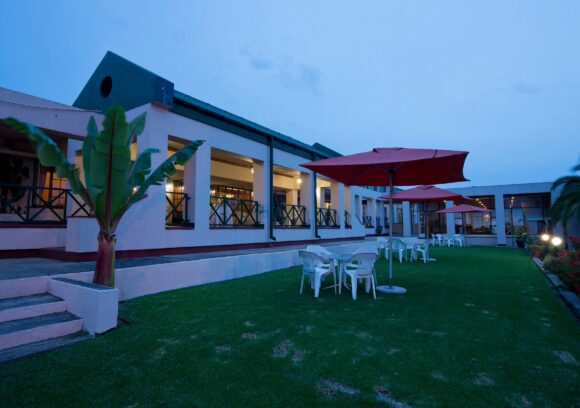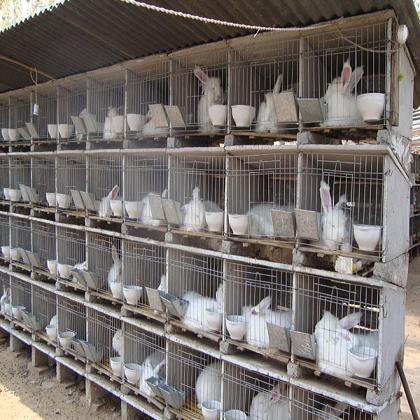Firm mulls rabbit farming contract schemes
Through the firm’s efforts across Zimbabwe, rabbit meat production and consumption has grown rapidly over the last few years with many leading hotels and supermarket chains now offering and selling the protein rich rabbit meat, respectively.
LOCAL private firm, Raymeg Holdings, intends to start contract growing schemes with rabbit farmers across the country to drive local rabbit meat supply, which could help empower about 1,8 million households in line with objectives of the national livestock growth plan.
This comes as Raymeg, a corporate member of the Zimbabwe Commercial Rabbit Breeders Association (Zicorba), continues to explore ways to support recovery and growth of commercial rabbit meat production, following the collapse of the industry a few years ago.
Through the firm’s efforts across Zimbabwe, rabbit meat production and consumption has grown rapidly over the last few years with many leading hotels and supermarket chains now offering and selling the protein rich rabbit meat, respectively.
Zicorba president, Regis Nyamakanga, who is also Raymeg founding director, said this at the weekend during the second anniversary celebrations of the formation of the association.
The cuniculture industry lobby group was launched in July 2020 to revive an industry that had collapsed due to economic challenges of the past decade.
Livestock and Meat Advisory Council (LMAC) chief executive Dr Reneth Mano was the guest of honour at the event. Several industry stakeholders, including Zicorba members and the leadership of the association’s different chapters across the country as well as representatives of retailers also graced the event.
“In line with the Government’s livestock growth plan, which has a special focus on small ruminants, our agenda is to empower the majority of the 1,8 million households in Zimbabwe with the means to enter into the cash economy, through rabbit production.
“Over the past two years, our farmers (mostly youths and women) have been organising themselves into small scale, medium scale and large scale rabbit producers. We have a number of companies that have also invested substantially in large scale rabbit production.
“A number of schools, colleges and universities are going into rabbit production because the start-up costs are relatively low compared to other forms of livestock. As the market for rabbit meat in Zimbabwe grows, we are toying with the idea of starting contract growing schemes in partnership with Raymeg.
“We also see rabbit production playing a catalytic role in the growth and development of our economy through employment creation, generation of much needed foreign currency and the general improvement of livelihoods.
“The growth of our industry will create many opportunities for downstream industries such as cage makers, fixers, rabbit nest makers, rabbit feeders and suppliers, to mention just a few. We are happy that the country now has its own (US$1 million) rabbit abattoir.
“The abattoir has entered into trade agreements with leading supermarket chains in Zimbabwe for the latter to sell rabbit meat in the country and create the much needed market for our members. We heard from Mr Ncube, of Medisha Private Limited in Matebeleland, that a second rabbit abattoir is being planned for Bulawayo.
“It will be launched before the end of this year to broaden and expand the distribution of rabbit meat in the country.
Over the next five years, rabbit meat could easily generate upwards of US$3 million from domestic sales alone, driven largely by access to affordable breeding stock, which Raymeg has been supplying on the local market and availability of funding.
“We have a number of banks knocking on our doors wanting to give funding to our farmers; we have kept them at bay largely due to the prohibitive interest rates that are prevailing currently, these are the things we are looking at over the next few years,” Mr Nyamakanga revealed.
He said huge opportunities for rabbit meat exports existed in African countries and China, which has in excess of 400 000 tonnes demand per year. “Already this week, we received numerous enquiries from Botswana, Zambia and Democratic Republic of Congo, for us to supply them with rabbit meat.”
Mr Nyamakanga said the massive interest in rabbit production in Zimbabwe over the past two years and the subsequent launch of the first ever rabbit abattoir, located in Harare’s Waterfalls area, had placed the country in good stead to becoming one of the top rabbit producers in Africa.
“In a short space of time, Zicorba has forged strategic alliances with rabbit farmer associations in Kenya, Zambia, South Africa, Uganda, Mozambique, Eswatini, Nigeria and Botswana.
“We aim to be among the top three rabbit producing countries in the next five years; we might actually be the top producer,” he said.
This comes as South Africa, one of the biggest producers from the region, is facing challenges and recently approached Zicorba offering to sell three rabbit abattoirs there, which are struggling to keep afloat, which has also seen farmers there seeking a market for their meat in Zimbabwe.
“At the end of last year, South Africans exported about 12 tonnes of rabbit meat to Zimbabwe through Raymeg Holdings, which was sold through the different outlets in the country. So, South Africans are looking for opportunities in Zimbabwe,” he said.
However, the massive gains by Zicorba over the past two years, in driving revival of the country’s cuniculture industry are being threatened by the massive increase in the price of feedstock, which Mr Nyamakanga said had shot up by more than 100 percent.
This has been the result of policy interventions to rein in inflation and free fall of the local currency.
“It is our wish that any future Government policy should be a product of extensive consultation with all stakeholders to ensure that the realisation of the desired effect of such policies comes into being.”
Dr Mano said the cuniculture industry was one of the country’s youngest value chains and that he was encouraged by the investment by Raymeg into the construction of the country’s first ever rabbit abattoir in Waterfalls, which is one of the biggest in Africa.
He said as an agriculture economist, his first research as an undergraduate student at the University of Zimbabwe in the 1980’s, was to study the willingness of Zimbabweans to pay for rabbit meat consumption based on a case study in Chitungwiza.
“There was already talk of potential (commercial) rabbit meat production and how to turn that potential into a livelihood development strategy, a food security strategy, a nutrition strategy to address some of the binding challenges that Zimbabwean consumers face, especially in urban areas, where consumption of protein has been declining, as income decreases.
He said many families were increasingly failing to consume sources of protein such as beef, fish and chicken on the table.
“What is our vision of a Zimbabwe we like, what kind of food for a Zimbabwean family that we believe will be in existence when we reach the upper middle income status by 2025? Hopefully, not 2030.
“When we do have that transition, what kind of food will be eaten? I always ask myself, how many of us are still able to eat chicken on Monday, beef on Tuesday, dairy on Wednesday, goat meat on Thursday, mutton on Friday, rabbit meat on Saturday and fish on Sunday, then you start again.”
Dr Mano, who comes from the LMAC, an umbrella body that represents 13 value chains of all the major livestock meat; beef, dairy as well as stock feed industry, said the role of LMAC was to advise the Government on where stakeholders want the livestock industry to go.
He said Zicorba had put in tremendous effort to come up with innovative ways to reorganise and re-energise the rabbit production sector through a different approach, which entailed proposed solutions to overcome challenges in the industry.-Herald










